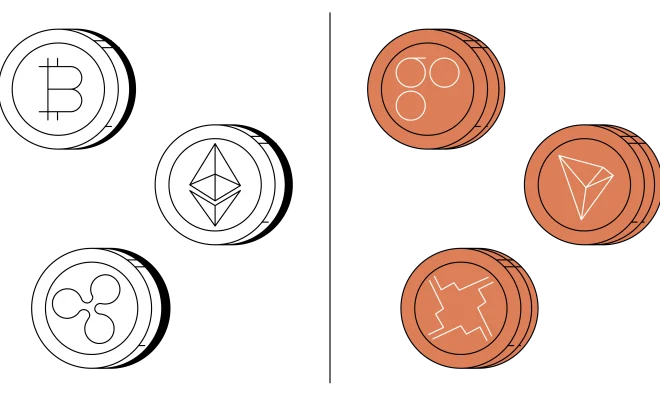What Are Crypto Tokens?

Introduction
The emergence of cryptocurrency has taken digital assets to new heights, garnering widespread attention and creating new opportunities. Among the plethora of digital assets, crypto tokens have become an increasingly popular financial instrument. But what exactly are crypto tokens, and how do they fit into the broader world of cryptocurrencies? In this article, we delve into the fundamentals of crypto tokens and how they can impact and transform industries.
Defining Crypto Tokens
A crypto token is a digital unit of value that resides on a blockchain, representing various assets or utilities within a specific project or ecosystem. Tokens are programmable, customizable, and often created using smart contracts. While similar to cryptocurrencies in some ways, tokens offer additional functions beyond just being traded digitally.
Crypto tokens are typically issued through an initial coin offering (ICO) or token generation event (TGE), which enables projects to raise funds for development and expansion.
Utility vs. Security Tokens
Tokens can be categorized into two primary types: utility tokens and security tokens.
1. Utility Tokens: These tokens act as a “digital key” that provides access to certain utilities offered by a project or platform. They represent access, discounts, or other benefits within a specific environment. Utility tokens are not primarily meant for investment purposes but rather designed to be used within the ecosystem they support.
2. Security Tokens: Unlike utility tokens, security tokens represent investments in a particular project or company. They behave like traditional securities such as stocks or bonds but exist in digital form on blockchain networks for additional efficiency and security. Security token holders often expect returns on their investments by profit sharing, dividends, or asset appreciation.
Popular Token Standards
Several popular token standards make it easier for developers to create and launch their own customized crypto tokens. Two well-known examples include:
1. Ethereum’s ERC-20: The most popular token standard is the Ethereum-based ERC-20 standard. It provides a template of rules and functionalities for creating tokens on the Ethereum network. The majority of ICOs and utility tokens use ERC-20 as it offers simplicity and ease of use.
2. Ethereum’s ERC-721: This standard is designed for non-fungible tokens (NFTs), which represent unique digital assets such as art, virtual real estate, or collectibles. ERC-721 is tailored for NFTs as these assets cannot be arbitrarily exchanged in a one-to-one ratio due to their uniqueness.
Notable Use Cases
Crypto tokens have found their way into various industries, playing critical roles in the following:
1. Decentralized Finance (DeFi): DeFi platforms often issue native tokens that give holders voting rights on the platform’s governance, staking opportunities, or other benefits.
2. Gaming: Blockchain-based games incorporate crypto tokens to represent in-game assets, making them tradeable and monetizable by players.
3. Loyalty Programs: Crypto tokens can serve as loyalty points, enabling customers to redeem them for goods or services within a specific ecosystem.
4. Tokenization of Real-world Assets: Tokens can represent physical assets such as real estate, art, or commodities while improving efficiency and security in transactions.
Conclusion
Understanding crypto tokens opens up new opportunities in the rapidly evolving world of digital assets. As blockchain technology continues to gain traction across industries, crypto tokens have the potential to transform traditional financial systems and reshape business models. Investors should carefully evaluate the purpose and functionality of each token, assessing their potential for inclusion in a diverse investment portfolio.






